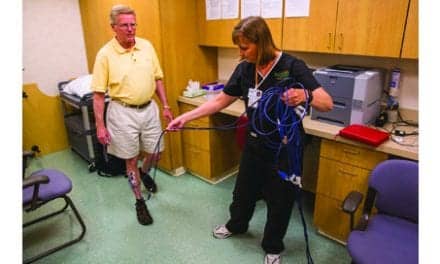Deficits in prospective memory in individuals with multiple sclerosis (MS) may contribute to difficulties with their ability to perform activities of daily living (ADL), according to Kessler Foundation researchers in a study published recently in the Journal of the International Neuropsychological Society.
Prospective memory entails remembering to perform an intention at a future point in time, or “remembering to remember.”
While interest in memory difficulties in the MS population has grown, most studies focus on retrospective memory, or the recall of previously learned information. Few studies have addressed difficulties with prospective memory, which are associated in general with poor everyday like functioning, and in MS specifically, with greater likelihood of unemployment, the researchers note, in a media release.
In this study, participants were presented with two types of prospective memory tasks: event-based tasks, which have relatively low strategic cognitive demands, and time-based tasks, which require more higher-order resources for successful completion.
One example of an event-based task would be remembering to mail a letter when passing a post office; an example of a time-based task would be remembering to call the doctor on Wednesday morning.
Researchers compared 30 adults with MS (aged 28-65) with 30 healthy controls. All participants underwent neuropsychological assessment, prospective memory assessment (Memory for Intentions Screening Test, MIST), and an everyday functioning assessment developed at Kessler Foundation (KF-Actual Reality), which presents individuals with three online purchasing tasks.
Results showed that compared to the control group, the MS group had more difficulty with tests of prospective memory, and their performance was poorer on time-based tasks than on event-based tasks.
There was a correlation between performance on the KF-Actual Reality and the time-based tasks, but not the event-based tasks on the MIST. Time-based deficits were associated with deficits in executive function, as well as lower motor scores, indicating a possible link between prospective memory and MS disease severity, according to Erica Weber, PhD, research scientist in the Center for Traumatic Brain Injury Research.
“Poor prospective memory hinders the ability to perform a broad range of everyday life activities, which undermines individuals’ independence,” Weber notes, in the release.
“Our findings indicate that developing strategies that improve time-based functioning may help individuals with MS improve their prospective memory and support their efforts to maintain their independence.”
[Source(s): Kessler Foundation, EurekAlert]





